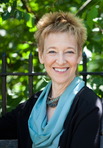Robin Marantz Henig's Blog, page 6
November 21, 2013
Growing Minority Think Doctors Should Always Do Everything
I was a bit surprised by the findings of the Pew Research Center, which reported today that the majority of Americans believe there is a time when doctors should cease their high-tech heroics at the end of life. The surprise: that the minority who think doctors should do everything to save a person's life, no matter what, under any circumstances, is actually growing.
Published on November 21, 2013 10:17
November 15, 2013
Dying Amidst the Life-Prolonging Machinery
A panel discussion of issues raised the aging of our population and life extension via technology -- the high cost of end-of-life care, the ins and outs of hospice and palliative care, whether to allow physicians to help terminally ill people die when they choose to -- are all, while crucial and getting more so, kind of familar. Is there a new way of thinking about it?
Published on November 15, 2013 06:47
October 29, 2013
Delicate Mother-Daughter Subjects: Don't Talk, Write!
Today is the publication date for the paperback edition of "Twentysomething," the book I wrote with my daughter Samantha Henig. To celebrate its release, I'd like to print an on-stage dialogue Sam and I performed last February as part of the wonderful storytelling series called Story Collider.
Published on October 29, 2013 06:01
October 22, 2013
How to Age Five Years in Five Minutes
Being reminded that you're old and expected to be forgetful turns out to be a surefire way to make you actually FEEL old, according to a study from Texas A&M.
Published on October 22, 2013 07:02
October 11, 2013
Rethinking the Permanence of Death
At a recent lecture called "Reversing Death," panelists were making a pitch for doing a better job of reviving people who seem to flatline: doing CPR for longer (measured in hours, not minutes), monitoring how chest compressions are done, and, most important, cooling the sort-of-dead person in order to preserve brain function.
Published on October 11, 2013 11:24
October 3, 2013
The Three C's of Parenting Adult Children
A new book about parenting young adult children, "Parents to the End," views parenthood as an evolutionary process characterized by The Three C's. The author, Linda Herman, also says there should be a Bill of Rights for parents of 20-somethings that includes the right to peace of mind, the right to be imperfect, the right to be free from guilt, and the right to say "no."
Published on October 03, 2013 09:03
September 30, 2013
The Dark Side of Fertility Treatments
The evening in New York City last week was billed as the start of a new movement, one sparked by infertile patients trying to give voice to the dark side of fertility treatments. "We want to make infertility an honored subject, free of stigma," said Irina Vodar, a documentary filmmaker now working on "The Cycle: Living a Taboo" about her own life on the IVF treadmill.
Published on September 30, 2013 07:05
September 27, 2013
"Death With Dignity" in the Courtroom
Recently, terminally ill patients in Canada and Europe have gone to court seeking help in dying. The bioethicist I wrote about last summer in an article on end-of-life decision-making testified at a few of these trials. The plaintiffs looked a lot like her paralyzed husband, whom I also wrote about. But with this critical difference: her husband said he didn't want to die.
Published on September 27, 2013 11:20
September 16, 2013
Is Generation Y Also Generation Lie?
Is it OK to lie to get yourself out of an awkward situation? Eighty percent of Millennials say yes, compared to just 57% of Baby Boomers. As New York Post reporter David K. Li wrote, the poll reveals "how the 18-to-32 Gen Y crowd views ‘truthiness.'" But it also might reveal how Baby Boomers have outgrown the social anxiety that makes young people lie in the first place.
Published on September 16, 2013 09:45
September 9, 2013
Nostalgia for a Time You Didn't Know
The music that was popular in your youth seems to be the music you recall most vividly -- and most nostalgically -- for the rest of your life. But so is the music that was popular in your parents' youth -- generally, music that was being played before you were born. Researchers call it a "cascading reminiscence bump."
Published on September 09, 2013 07:11



